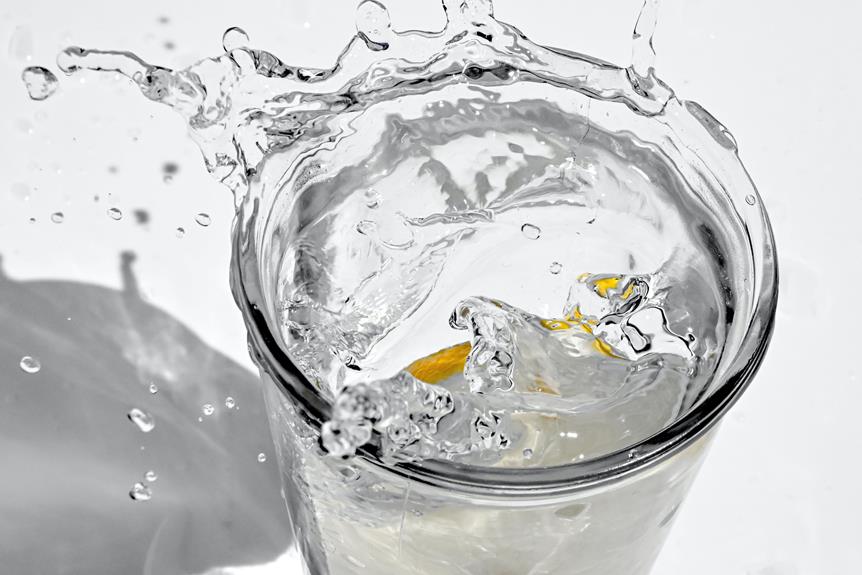Can You Drink Nepal Water?
Imagine standing at the crossroads, where the purity of a mountain stream converges with the perils of urban contamination. In Nepal, the question lingers: can you trust the water that flows? As you ponder the delicate balance between thirst and caution, a journey through the complexities of water safety unfolds.
Water Quality in Nepal
Water quality in Nepal varies significantly due to its diverse geography, presenting distinct challenges particularly in urban areas. Access to safe drinking water is a pressing issue in Nepal, especially in urban areas where tap water safety is a concern. The quality of tap water in Nepal can be questionable, leading many to seek alternative sources or employ water purification methods to ensure the water is safe for consumption.
In rugged terrains, accessibility to clean water is even more challenging. However, natural springs in the mountains may offer pristine water that is safe to drink without the need for extensive purification processes. Despite these natural sources, urban areas still struggle with ensuring the safety of their tap water.
Efforts are being made to address water quality concerns in Nepal. Initiatives such as water purification methods and the involvement of water NGOs aim to improve access to safe drinking water for the population. While challenges persist, steps are being taken to enhance the quality of drinking water in both urban and rural areas of Nepal.
Risks of Untreated Water
Considering the potential health risks associated with untreated sources in Nepal, it is crucial to be vigilant about the water you consume. Drinking untreated water exposes you to harmful bacteria, viruses, and contaminants, increasing the risk of waterborne diseases such as diarrhea, dysentery, cholera, and typhoid. Sources like taps, rivers, or lakes in Nepal may contain dangerous microorganisms that can lead to various illnesses if ingested without proper treatment.
The safety of tap water in Nepal is not guaranteed, making it advisable to avoid direct consumption from these sources. To mitigate the risks of untreated water, prioritize safe drinking water options such as bottled, boiled, or purified water. Boiling water can effectively kill harmful pathogens, making it a reliable method to ensure water safety. Additionally, using water purification tablets or filters can help remove impurities and make water safer for consumption.
Opting for bottled water is another convenient and safe choice when traveling in Nepal. While it may incur additional costs, the assurance of drinking clean and safe water outweighs the potential health consequences of consuming untreated water. By being mindful of the risks associated with untreated water and choosing safer alternatives, you can safeguard your health and enjoy your travels to Nepal without compromising your well-being.
Drinking Tips for Travelers
When traveling in Nepal, it is essential for tourists to prioritize safe drinking choices to avoid health risks associated with contaminated water sources. Here are some important drinking tips for travelers to ensure you stay healthy during your journey:
- Buy Bottled Water: Opt for sealed bottled water from reputable sources to guarantee safe drinking water throughout your travels in Nepal.
- Boil Water: Boiling water for at least one minute is an effective way to kill harmful bacteria and viruses, making it safe for consumption.
- Use Purification Tablets: Utilize water purification tablets as an alternative method to ensure the water you drink is free from contaminants.
Hygiene Practices for Safety
To maintain optimal safety standards while in Nepal, implementing proper hygiene practices is paramount for safeguarding your health during your travels. When it comes to water safety, it is crucial to prioritize your health by following specific guidelines. Boiling water for at least one minute is an effective way to eliminate harmful pathogens and ensure that the water is safe to drink. Additionally, using water purification tablets or filters can serve as alternative methods to obtain clean drinking water in Nepal.
To prevent contamination, practice good hygiene by washing your hands before handling water. Avoid consuming untreated water from taps, as it may lead to waterborne illnesses. It is advisable to prioritize bottled or purified water to maintain good hygiene and safety standards during your trip. Proper disposal of water bottles after use is also essential to prevent environmental pollution and maintain cleanliness.
Addressing Water Concerns in Nepal
Nepal's water quality poses significant concerns, particularly regarding the presence of harmful bacteria and viruses, making it crucial to adopt proper precautions for safe consumption. When visiting popular tourist destinations like Everest Base Camp, where the water supply may not meet safety standards, it's essential to prioritize your health by choosing safe drinking options. Here are some tips to address water concerns in Nepal:
- Boiling water: Boiling water is one of the most effective methods to make water safe for consumption in Nepal. This simple technique helps kill harmful bacteria and viruses, making the water safer to drink, especially in remote areas or high altitudes.
- Using plastic bottles: Opt for bottled water from reputable sources to ensure you are consuming safe drinking water. Carrying your portable water bottles and refilling them with trusted bottled water can help reduce plastic waste and ensure safe hydration throughout your journey.
- Water purification tablets or filters: As a backup option, consider carrying water purification tablets or filters. These tools can be handy, especially when clean water sources are scarce, providing an additional layer of protection against waterborne illnesses.

